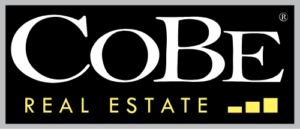Savvy business owners are always looking for ways to maximize the strength of their operating expense dollars, especially when it comes to small and midsize enterprises. Though, an unfortunate circumstance (or more) arises when this same sort of confidence is applied to the construct of a new commercial lease. Before we get into the specific aspects of negotiating a commercial lease, let’s address the lofty task of entering into a DIY leasing situation, representing oneself in this real estate transaction and the risks therein.
Do It Yourself Is for Home Renovations, Not Commercial Space
Thanks to the myriad of cable networks shows that illustrate how to break down kitchen walls to open up living space, or the endless Youtube videos that explain how to re-plumb a bathroom sink, the do it yourself population has exploded. And while there are still risks in doing it yourself, the potential mistakes can be readily rectified. Not so for anyone engaging in a do it yourself lease for their business and here’s why.
Commercial Real Estate Contracts Can Be Tricky
Far different from a residential lease agreement, commercial leases have many more variables attached to their contracts because most run from three to five years in length. Even those numbers will vary, depending on the type of market. For example, if the market it hot with minimal vacancy rates, landlords will push tenants for five to ten year terms at high price per square foot. Conversely, in slow markets, shorter lease terms allow landlords to open the door to higher rents, should the markets regain stability. But if you don’t have a leasing broker there to represent you as the tenant, would you know how the market could affect rental rates and your overall negotiating tactics? Probably not, and the devil is most certainly in the details.
Blame It in the Boom Boom
Much like the importance in having forecasts, budgets and a marketing plan for your business, whether it be retail, office, medical or industrial, understanding the components of a commercial real estate agreement is not only crucial to your bottom line, it can enhance or adversely affect your growth.
When planning your next move, literally, into a new commercial space, there are a multitude of points that must be carefully considered before choosing a location and negotiating the terms. In addition, location can be a sticking point, especially in a market that has certainly rebounded and is likely to continue to show well as people and their businesses continue to migrate to Arizona for better property value and overall quality of life.
The good news here is that commercial leases are not a one-size-fits-all. What may be an issue for one business owner may be a treasure for another.
What to Look for in a Commercial Lease before You Start Your Search
Alignment. This might not be the word you’d expect but alignment is tied to every commercial lease success story. In order to facilitate alignment in your lease, the clauses within the contract need to support and enrich the growth of your business. Even if your goal is to remain stagnant (a steady flow of customers, expenses and income) with no real increase or dip to your business, lease terms can be constructed to parallel with your plan.
Honesty. You’ll never see the light of day on alignment if you aren’t honest with yourself about where your business stands and where you want it to go over the course of the next three to five years. Make sure to review what your income and growth projections are (employee head count) and then allot for a space that has the provisions needed to make it happen.
Time. When the economy is bustling, commercial real estate is often just as lucrative. Vacancy rates can be low. Future-casting is important to any business looking to change up their commercial space. To stay ahead and ensure a more seamless relocation, take the time necessary to avoid rush decision making. If your current lease is up in six months, start reviewing your business goals and begin to get a feel for locations of interest.
Options. Even though you think your business is ready to go elsewhere, staying put may prove to be the best choice of all. If you need to downsize, ask your landlord or property manager if the tenant next door is looking to expand. Should your business be the tenant needing more space, ask when the neighboring tenants’ leases expire. If you have a solid track record, the landlord will likely want to work with you and do what is possible to keep you. Reliable tenants are invaluable.
A Professional Commercial Broker. It’s easy to espouse an argument for utilizing the services of a commercial real estate broker in the search and negotiations of a property lease. In addition to including the tenets of the above-mentioned into the initial conversation, an experienced agent will provide just that, experience. Here’s why experience matters and overrides any perceived financial benefit to a DIY lease.
What A Commercial Real Estate Broker Has That You Don’t
There’s a saying amongst people that comes to mind, “I know what I know and I don’t know what I don’t know.” The quicker you can acknowledge this tidbit, the faster you’ll be contacting a commercial real estate agent to help you with your lease. Here’s a hint as to why and how sooner is better.
What a commercial real estate broker has that you don’t:
- Day-to-day commercial real estate knowledge
- Ongoing industry relationships
- Ability to identify opportunities
- Grasp of triple net leases
- Licensures and protections
The aforementioned list touches on the basics that a competent, seasoned commercial broker can bring to your next commercial real estate lease transaction. How these features coincide with your best interests is that they help bring alignment, honesty, time and options to the forefront of your lease terms advocating success in your favor.
Only a licensed commercial broker can utilize industry-specific skills to expose potential side effects of a one-sided lease agreement (landlord-centric) and represent you and your business in a manner that’s transparent, progressive and doesn’t cost you anymore than necessary. In fact, commercial property representation will afford you the ability to get the lease terms you want, over the course of the lease term, at a savings that will exceed the commissions paid to the commercial broker.
What else does the commercial brokerage leasing commission bring a tenant?
Protection against unscrupulous property owners.
Network of business owners they can refer to your business.



